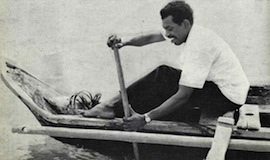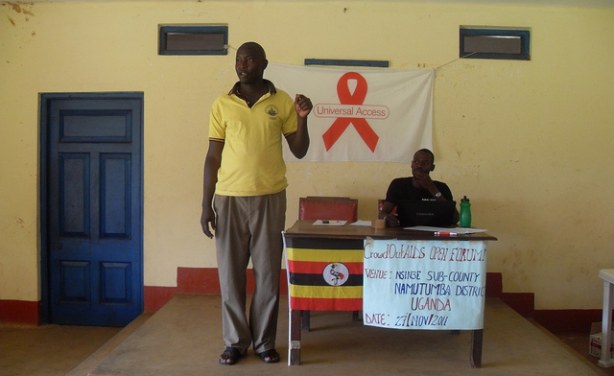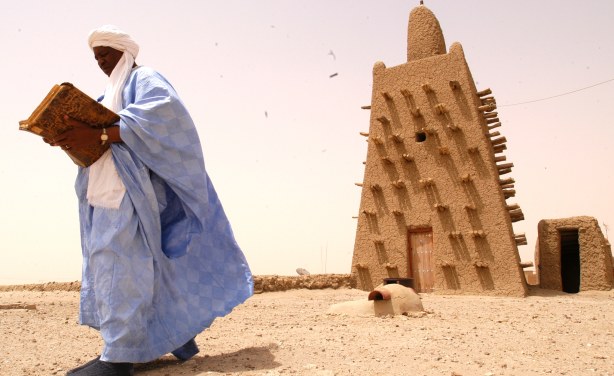 Babu’s ideas and organizing skills were behind the Zanzibar revolution of 50 years ago. A great pan-Africanist and socialist, his life is an inspiration to all people who dare to resist oppression and imperialism.
Babu’s ideas and organizing skills were behind the Zanzibar revolution of 50 years ago. A great pan-Africanist and socialist, his life is an inspiration to all people who dare to resist oppression and imperialism.In 2014 Pan Africanists will commemorate two seminal events in the history of the African liberation movement: 1) the 50th anniversary of the successful revolution in Zanzibar and 2) the 90th birthday of Mohamed Babu. Although he passed away in 1996, his life is an excellent illustration of the connections between the various movements and figures in the Black World. Sadly, so much of Babu’s immense contributions to Pan Africanist, Leftist, and progressive movements has been forgotten. This is unfortunate because of his enduring love and commitment to Zanzibar, the African continent, and humanity at large.
Babu was born in 1924 in Zanzibar, a small but historic island on the east coast of Africa. Since the 1830s, Zanzibar was dominated by Omani Sultans who were middlemen during the era of British colonialism. While studying abroad in London, Babu was attracted to radical Left wing ideas. After returning to Zanzibar, he soon became a leader in the Zanzibar Nationalist Party (ZNP), one of the preeminent Nationalist organization on the island.
As Secretary General of the ZNP, he promoted a socialist ideology and built international networks of Black and radical organizers. For example, in 1958 at the founding conference of the Pan African Movement for East and Central Africa (PAFMECA), Babu was elected secretary. Later that year while traveling to the historic All African People’s Conference in Accra, Ghana, his delegation would have a chance encounter with future Congolese head of state and Pan African icon Patrice Lumumba in Leopoldville. At this point, Lumumba was isolated and virtually unknown outside of the Congo but the invitation and travel support provided by PAFMECA allowed him to network with liberation movements throughout Africa. Lumumba would later be assassinated in a CIA-backed coup.
Once at the AAPC, Babu quickly connected with the most radical forces such as Frantz Fanon and the FLN of Algeria. Fanon, Babu, and others convinced those who had achieved independence using non-violent methods like Kwame Nkrumah of Ghana that in some circumstances armed struggle is a necessity. The official slogan adopted for the conference was ‘Independence, by any means necessary.’ Malcolm X and other Black activists in the diaspora would hear and popularize this slogan.
Furthermore, Babu was a close friend and comrade of Malcolm X. They first met in July 1964 at the second summit of the Organization of African Unity (OAU) in Cairo, Egypt. Later when Malcolm visited Tanzania it was Babu who introduced him to other governments officials and when Babu came to Harlem, Malcolm introduced him to the activist community. It was radical African leaders such as Babu who helped push Malcolm to the Left after his departure from the Nation of Islam. In his final months, Malcolm would claim ‘the system of capitalism needs some blood to suck’ so it wasn’t a shock to him that “all of the countries that are emerging today from under the shackles of colonialism are turning toward socialism.”
Babu’s international organizing was directly connected to his political work in Zanzibar. The ZNPs rival was the Afro-Shiriza Party (ASP), a British backed right wing formation that used the slogan ‘Uhuru Zuia’ (Kiswahili for ‘stop the move to independence’). Although Babu and others promoted a progressive anti-imperialist platform in the ZNP, by mid-1963 reactionary forces exacerbated long standing racial tensions between Africans and Arabs on the island to gain the upper hand in the organization. Therefore, months before Zanzibar gained independence in December 1963, Babu co-founded the revolutionary socialist Ummah Party.
The party’s creation was a correct analysis of the potentially revolutionary conditions. On January 12, 1964, the unemployed and oppressed youth of Zanzibar rose up in spontaneous rebellion. The Ummah Party leadership used its organizing experience and training in Cuba to teach the youth revolutionary tactics and gain leadership of the insurrection. The Ummah party and disaffected youth removed the Sultan from power. This was Africa’s first successful revolution to overthrow neocolonialism.
The full article can be found at Pambazuka News.
By Benjamin Woods
2014-07-03, Issue 685




